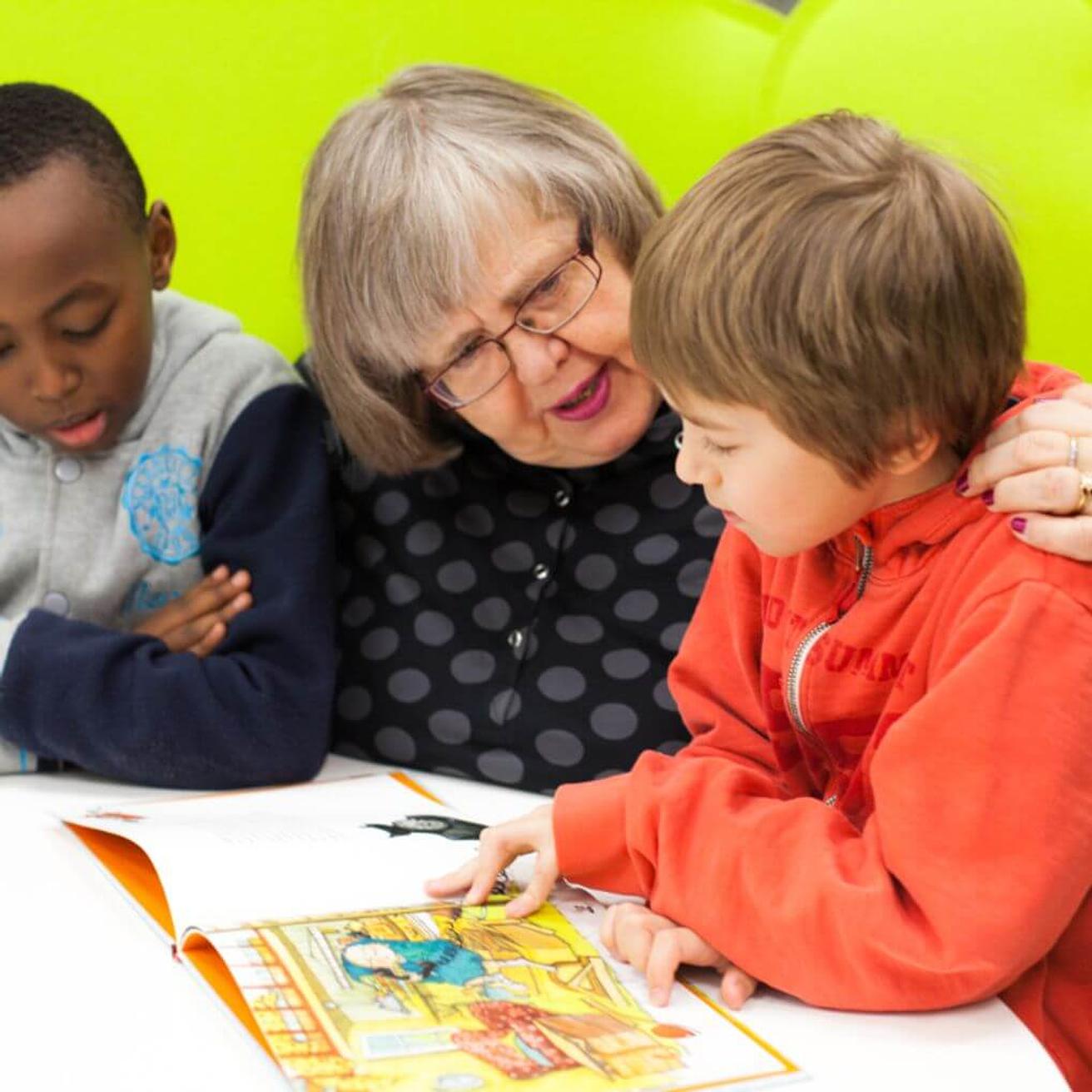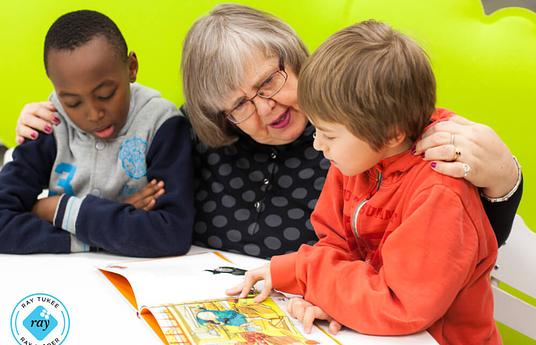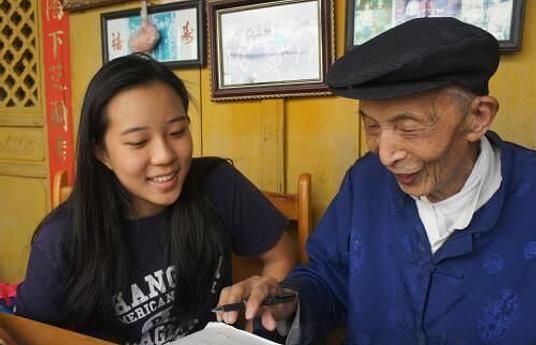Developing reading skills plays a key role in success during school and beyond. Reading unlocks almost every other subject area and is of course a vital part of functioning in the outside world. However, not everyone learns to read at the same rate and some will face significant barriers to gaining fluency or a love for reading. With parents and teachers pushed for time, who can give those children the extra time and support they might need to reveal their hidden reading talents? In Finland, many teachers have turned to grandparents.
Enlisting the help of older volunteers can be a win-win situation for all involved. Older adults may be looking to fill their free time, lend their experience and feel part of something bigger than themselves. In fact, research suggests that generativity (a need to nurture and guide younger people and contribute to the next generation) contributes to life satisfaction in older age, with interactions with others and a sense of purpose being key to successful aging. Teachers are often pressed for time and chaotic classrooms can always benefit from more hands on deck. Children and young people can never have too many role models, too much help with their troubles or too much praise for their success. Having a mentor to support them with reading could be particularly useful to children who struggle with reading or are not being taught in their native language, as they might benefit from the dedicated one to one support.
In Finland, Reading Grandmas and Grandpas are specially trained to help teachers improve students' reading skills, visiting schools for half a lesson to read with the children. During these sessions children and seniors read and discuss a variety of books together. It’s a perfect time for young readers to practise reading aloud but also to see the joy and fun in reading. Afterall, learning to read isn’t just about decoding words. Having a well trained and passionate older person to share reading with can help connect kids to the magic of reading; diving into what a character might be feeling, learning new words and sharing the excitement of ‘what might happen next?’
The sessions are designed mainly for those that need a bit of a boost when it comes to getting stuck into a book. As well as being warm and encouraging, the grandparents are highly trained in researched reading techniques to boost reading fluency and aid the learning of new vocabulary. We all know that grandparents are great at giving their undivided attention to children. For kids who are struggling, this kindness and encouragement could be exactly what they need to build up their confidence and self esteem. Not every child comes from a book-filled home, so positive reading role models and special moments shared over a book could even be enough to spark a life-long interest in reading.
So far, this approach has been adopted by over 60 schools in Finland. One Finnish educator reported that “Reading with Grandma has given the student more ability and passion for reading. The one-on-one breaks with Grandma have been a nice addition to the school week.” One ten year old student summed up the experience, saying “I learnt kind of a lot from grandma. I learnt what's a smell and what's a scent – a lot of new words.” But whether they realize it or not, it’s likely students aren’t just learning vocabulary from the older generation, as reading for pleasure has also been linked with progress in more unexpected areas like maths and problem solving!
Whilst the Reading with Grandma and Grandpa model in Finland is easily replicated in other countries and schools, there’s no reason to stop at reading. If there is another need in your school, perhaps you could welcome older volunteers in the community to share their cookery, sewing or gardening skills. They could even share their stories and experiences as part of a modern history lesson.
As many countries around the world now have an aging population, it makes sense to welcome the unique skills and experiences that the older generation can bring to schools. A model like this could be an ideal way to increase intergenerational understanding, build relationships and increase mutual respect - as well as providing a wonderful helping hand in the classroom.
If you’d like to try a model like this in your school, check out Reading Grandmas and Grandpas for inspiration and advice.


